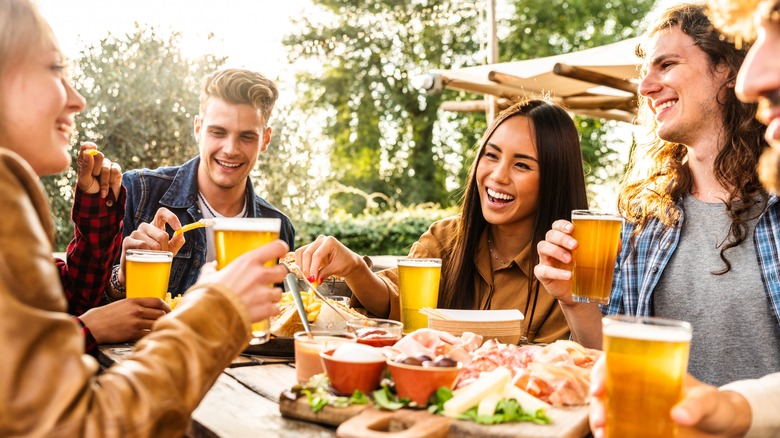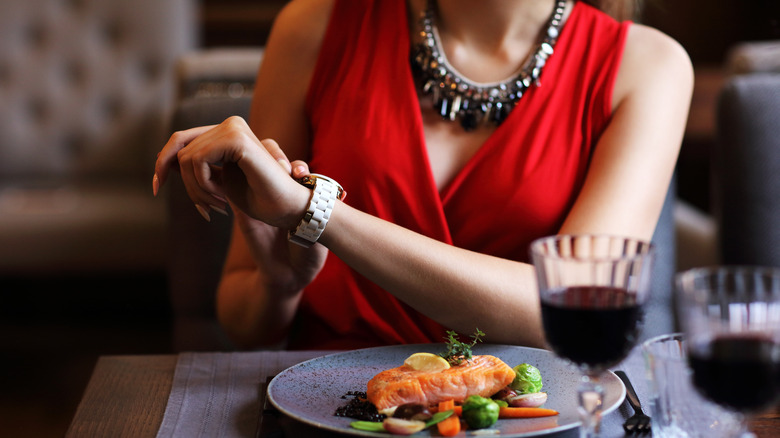The Restaurant Mistake That May Be Costing You Excellent Service
Going out to good restaurants is arguably one of the greatest pleasures of life. Who doesn't love to eat food that was cooked for you by talented chefs, alongside fun company (or alone, if that's your preference) in a welcoming atmosphere? Food just seems to taste better in a restaurant, when you're all out enjoying yourselves. All in all, everyone wants the best possible experience when they dine out, but there's actually one common mistake that you're probably making.
When going out to dinner, most people aim for a later reservation time, such as 7 or 8 p.m. While this may seem like the most natural time to make a restaurant reservation, you may want to consider eating earlier — say, between 5 and 6:30 p.m. — to make sure you get the best service possible.
Basically, if you go at an earlier time, the staff — both servers and chefs — have more energy (and are likely in better moods) as it's before the dinner rush when everything can become chaotic. Because of this, you're likely to get better service and meals that were prepared with more careful consideration. Additionally, it will be easier to even get a reservation in the first place at a popular restaurant if you opt for an off-peak time. On top of all that, you'll be finished at an earlier time, leaving the rest of the night free for you to do as you please, whether that's going out for drinks or catching up on your favorite shows.
There are health benefits to eating earlier, too
There may also be health benefits to dining early. Various studies over the years have concluded that eating early is better than eating later. One, published in Cell Metabolism, found that those who ate later in the day had an increased level of hunger overall and burned calories at a slower rate.
A study conducted by Harvard Medical School, found that eating dinner late can lead to a higher risk of obesity and increased body fat, as well as making it harder to lose weight if you're trying to do so. Nina Vujović, the first author of the study and a researcher in the Medical Chronobiology Program, said, "We found that eating four hours later makes a significant difference for our hunger levels, the way we burn calories after we eat, and the way we store fat."
Of course, it's important to keep in mind that these studies are not the be-all and end-all. Other studies indicate that the time that you eat dinner matters more depending on if you have underlying health conditions, such as diabetes. Further, Wendy Bazilian, a nutritional science expert, told Real Simple, that it's best to pick a dinner time based on your circadian rhythm.
But even if your rhythm doesn't line up with an early dinner, it's certainly worth making an exception here and there in order to have the best possible experience dining out. You never know, you may end up sticking with the earlier dinner schedule.

